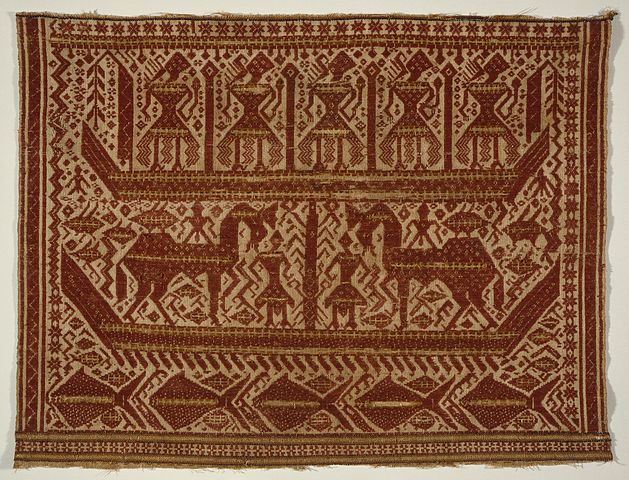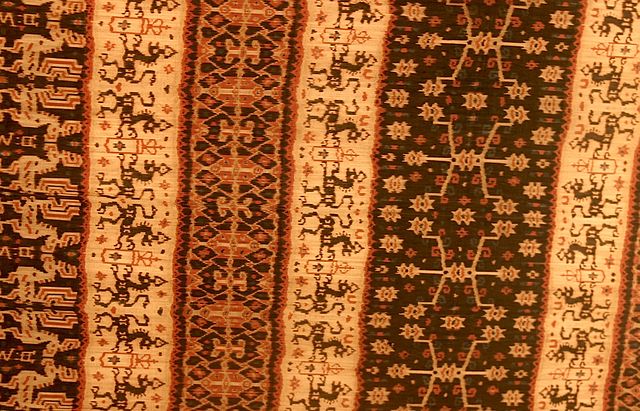
Thammasat University students interested in ASEAN studies, Indonesia, history, political science, sociology, and related subjects may find it useful to participate in a free 21 November Zoom webinar on Indonesia’s 2024 Elections: What Past Elections Can Tell Us about Indonesia’s Future Trajectory.
The event, on Tuesday, 21 November 2023 at 1:30pm Bangkok time, is organized by ISEAS – Yusof Ishak Institute, Singapore.
Its website explains:
The 2024 Presidential and Legislative Elections in Indonesia are just three months away. While the legislative elections are going to be the sixth democratic election since the fall of Soeharto in 1998, it will be the fifth direct presidential election. Since the first direct presidential election in 2004, political and electoral reforms have been taking place. As democratic institutions are being shaped, voters and political actors are learning and adapting their strategies. Nevertheless, Indonesia is not immune to the global trend of democratic regression. Is Indonesia indeed going on the downward path of its democracy? How can we explain this from the perspective of voters and democratic institution building in current and past elections? This seminar will highlight some of the key trends in the past elections, which can potentially predict the outcome of the upcoming elections.
The speaker will be Dr. Philips Vermonte, Dean of the Faculty of Social Sciences of Indonesian International Islamic University.
The TU Library collection includes several books about different aspects of politics in Indonesia.
Students are invited to register at this link:
https://us06web.zoom.us/webinar/register/8517001026736/WN_afcFy4UXRkSnEMpODIxIdQ#/registration

A report published on the website of the Carnegie Endowment for International Peace, a nonpartisan international affairs think tank headquartered in Washington D.C., with operations in Europe, South and East Asia, and the Middle East, observes:
Indonesia’s 2024 Presidential Election Could Be the Last Battle of the Titans
On February 14, Indonesia will hold the world’s largest single-day election to elect a president and vice president, along with nearly 20,000 representatives to national, provincial, and district parliaments from a pool of a quarter-million candidates.
Since Indonesia’s democratic transition in 1998, voting has become a highly celebrated act of civic life. Nearly 200 million voters go to the polls every five years and dismiss about half their lawmakers in free and fair elections.
Despite this vibrant electoral process, Indonesia’s democracy is still dominated by political, business, and military leaders who built their fortunes during thirty-two years of Suharto’s authoritarian rule. Under immense public pressure, they agreed to democratize but set the electoral rules to achieve two ends: create unfair barriers to entry for new players while ensuring fair competition among themselves.
Over the past two decades, power has mostly shifted hands between these elites, whose political parties decide who appears on the ballot and what the winners do in between elections. Joko Widodo, the country’s immensely popular president, is the first outsider to breach this clique. But he quickly learned that while popular support may have helped him ascend to power, exercising it in a system controlled by Suharto-era elites required playing by their rules.
In 2024, Indonesia’s septuagenarian powerbrokers are backing new and old hopefuls for the presidency, in what may be their last chance to define the field of political contestation. But Widodo, whose bid to seek an extra-constitutional third term in office was blocked by this old guard, is not ready to part with power and has publicly declared his intention to “meddle” in the race.
Unlike his predecessors, Widodo lacks the political pedigree that would give him influence in politics after exiting office. He is drawing, instead, on his enduring popularity and control over state institutions to ensure the election of a friendly successor and establish himself among a new generation of kingmakers.

AN INSIDE JOB
Indonesia’s democratic transition has been aptly described as an “inside job.” In 1998, the devastating impact of the Asian financial crisis galvanized mass opposition against then president Suharto, who had risen to power on the back of an anti-communist purge in 1965. In the face of growing public protests against Suharto’s authoritarian rule, his military and political allies forced him to resign. Free elections were held within a year.
The 1999 elections were contested by forty-eight parties, twenty-one of which were able to win seats in the parliament. The top performers, however, were the same three parties that had comprised Suharto’s rubber-stamp parliament. The biggest winner was the Indonesian Democratic Party of Struggle (PDIP), led by Megawati, daughter of Indonesia’s first president, Soekarno, whom Suharto had deposed. In second place was Suharto’s own Golkar party, led by regime loyalists from business and military backgrounds. And third was the United Development Party, composed of Muslim elites representing different social and ideological groups.
In command of nearly two-thirds of the parliamentary seats, these regime insiders set about revising the rules of political competition. While public pressure to make the system more competitive was immense, they were determined to preserve their dominance within it. As a result, the constitutional amendments passed between 2001 and 2002 contain bold measures for improving representation alongside conditions that favor the large incumbent parties.
For example, the elimination of a quota for military seats in the parliament came with exceptionally onerous registration requirements for new political parties. Introduction of direct presidential elections was tempered with a nomination threshold, so that only parties with at least 20 percent of seats in the parliament could field a candidate. The switch to an open-list proportional representation system gave voters more say in the election of legislators, but the formation of big electoral districts cemented the advantage of old parties that had better campaign infrastructure.
The new rules ensured that the mass movement that had emerged to oppose Suharto and demand radical change never translated into a political organization. Indeed, all new parties that have had any success in entering the parliament after 2004 were led by Suharto-era businessmen and retired military generals, who had the resources to comply with the arduous administrative requirements.
The absence of new challengers gave rise to a predictable pattern of collusive power-sharing among Suharto-era elites. They competed against each other in highly charged presidential and legislative races through aggressive campaigns and widespread vote-buying. But rival parties rushed to form post-election alliances with the winner in exchange for appointment to lucrative ministerial posts. […]
The 2024 election is bringing Indonesia to the cusp of an impending generational change. The old elite are still in charge of picking the candidates, and following the long tradition of dynastic politics in the country, several of them have taken measures to bequeath the leadership of their parties to their children. Lacking this kind of lineage, Widodo is using his incumbent power to position himself among the next generation of kingmakers. […]

(All images courtesy of Wikimedia Commons)
